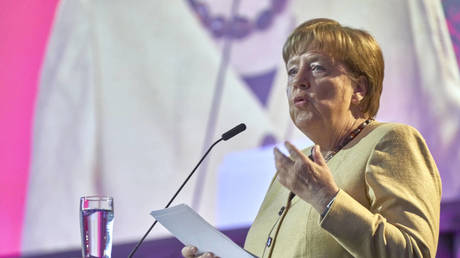ARTICLE AD BOX
Right-wing leader Geert Wilders has said his party will exit the ruling coalition after his proposed immigration overhaul was rejected
The Dutch government is teetering on the verge of collapse after a dispute over immigration policy led Geert Wilders to withdraw his party from the ruling coalition.
Wilders, the leader of the right-wing Party for Freedom (PVV), which emerged as the largest party in the 2023 parliamentary elections, announced on Tuesday that the PVV is leaving the four-party coalition government because his partners refused to accept his immigration overhaul. Wilders added that he notified Prime Minister Dick Schoof of the PVV ministers’ decision to withdraw from the government.
“No signature under our asylum plans. The PVV leaves the coalition,” he wrote on X on Tuesday.
Last week, Wilders released a ten-point plan aimed at drastically reducing migration, intensifying pressure on the four-party coalition to adopt a harder line or face a potential cabinet crisis.
“I signed up for the toughest asylum policy and not the downfall of the Netherlands,” Wilders told reporters, according to Euronews.
Wilders had proposed the “strictest migration policy ever” in the Netherlands, a stance his coalition partners claimed to support. In May 2024, the four ruling parties finalized an agreement that featured “the strictest asylum admission policy and the most comprehensive migration control package ever.”
Read more EU could be ‘destroyed’ – Merkel
EU could be ‘destroyed’ – Merkel
The proposal called for a halt to asylum applications, the temporary suspension of family reunification for recognized refugees, and the deportation of all Syrians who applied for asylum or are residing in the Netherlands on temporary visas.
Wilders also sought the closure of asylum centers. Legal experts have warned that several elements of the plan violate European human rights laws and the UN Refugee Convention, both of which the Netherlands is bound by as a signatory.
The Party for Freedom, led by Wilders and known for its proposals to ban the Quran and shut down Islamic schools, secured the most seats in the November 2023 elections, marking a significant shift in the Dutch political landscape.
Wilders formed a coalition government with three other right-leaning parties: The center-right People’s Party for Freedom and Democracy (VVD), the populist Farmer Citizen Movement (BBB), and the New Social Contract (NSC). The agreement followed more than six months of negotiations and marked the first time Wilders’ party was included in a governing coalition, having previously been excluded by mainstream parties.
The four-party coalition holds 88 of the 150 seats in the House of Representatives, giving it a solid majority.
.png)
 1 day ago
1
1 day ago
1








 English (US)
English (US)